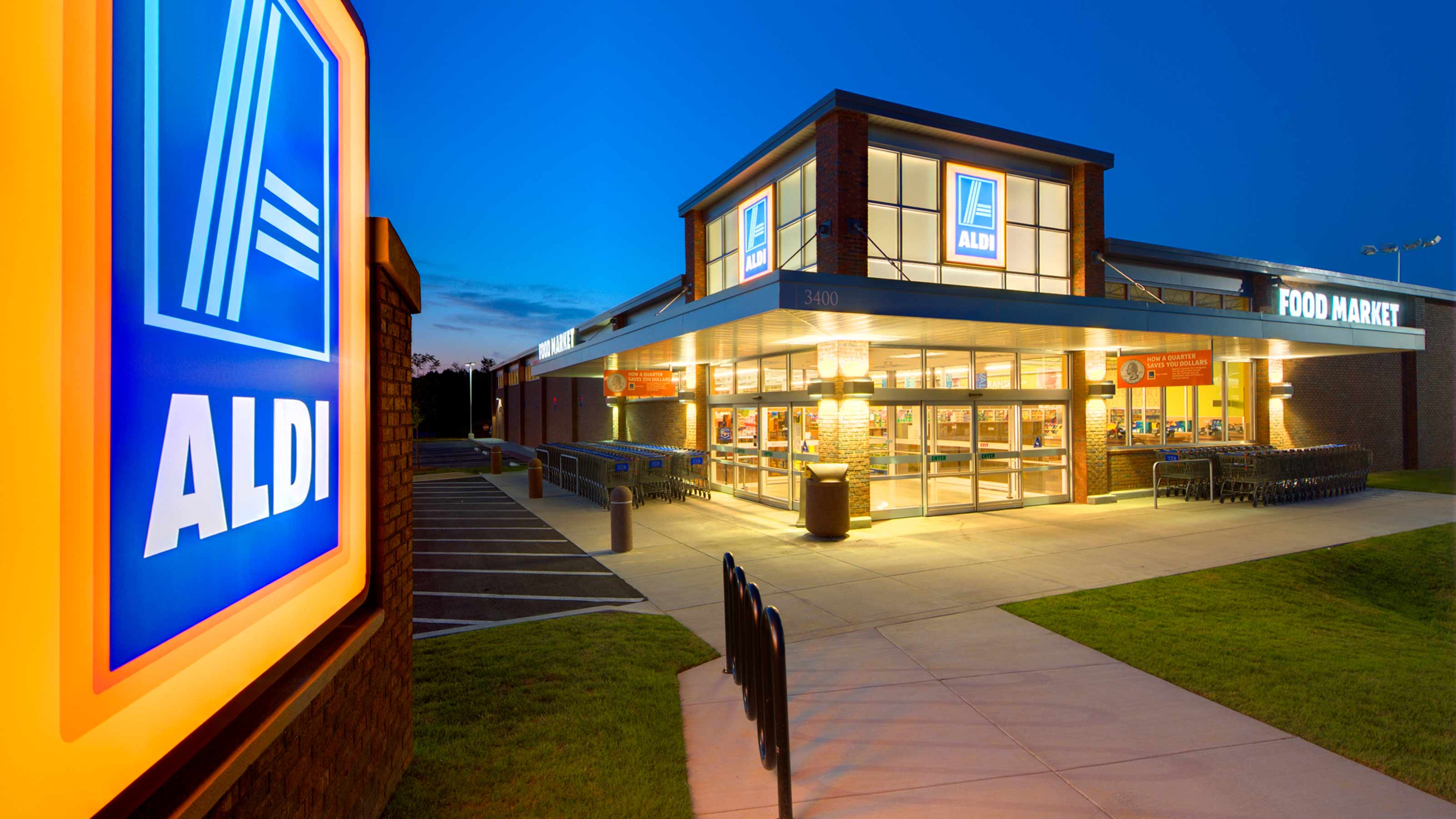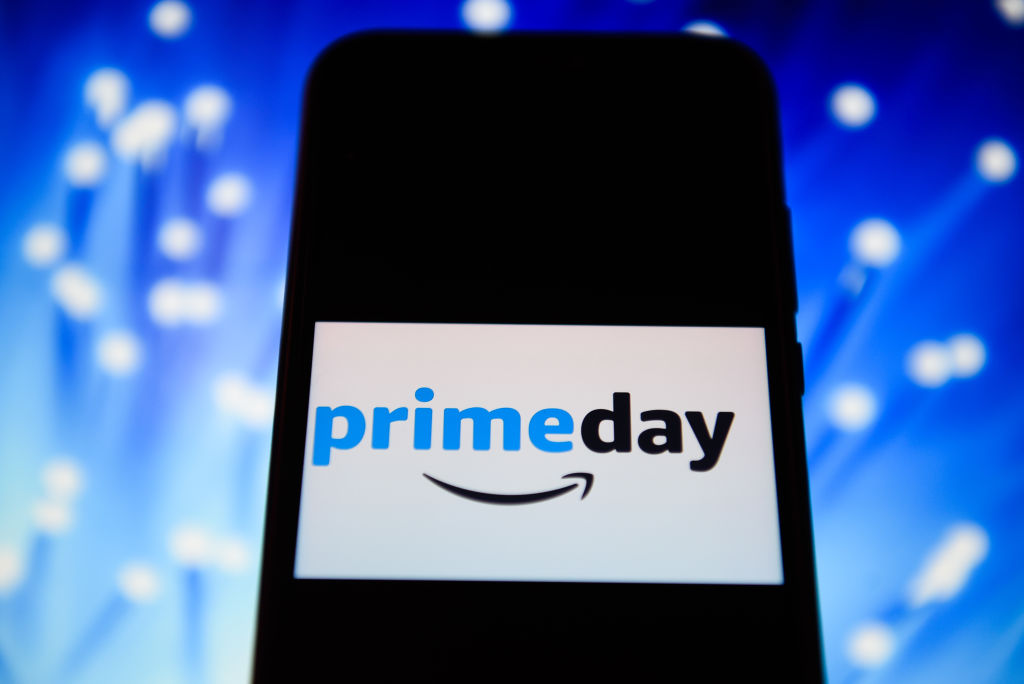5 Reasons to Shop at Aldi Instead of Trader Joe's
Take advantage of low prices and organic, gourmet and gluten-free offerings at this discount grocery store.


Profit and prosper with the best of Kiplinger's advice on investing, taxes, retirement, personal finance and much more. Delivered daily. Enter your email in the box and click Sign Me Up.
You are now subscribed
Your newsletter sign-up was successful
Want to add more newsletters?

Delivered daily
Kiplinger Today
Profit and prosper with the best of Kiplinger's advice on investing, taxes, retirement, personal finance and much more delivered daily. Smart money moves start here.

Sent five days a week
Kiplinger A Step Ahead
Get practical help to make better financial decisions in your everyday life, from spending to savings on top deals.

Delivered daily
Kiplinger Closing Bell
Get today's biggest financial and investing headlines delivered to your inbox every day the U.S. stock market is open.

Sent twice a week
Kiplinger Adviser Intel
Financial pros across the country share best practices and fresh tactics to preserve and grow your wealth.

Delivered weekly
Kiplinger Tax Tips
Trim your federal and state tax bills with practical tax-planning and tax-cutting strategies.

Sent twice a week
Kiplinger Retirement Tips
Your twice-a-week guide to planning and enjoying a financially secure and richly rewarding retirement

Sent bimonthly.
Kiplinger Adviser Angle
Insights for advisers, wealth managers and other financial professionals.

Sent twice a week
Kiplinger Investing Weekly
Your twice-a-week roundup of promising stocks, funds, companies and industries you should consider, ones you should avoid, and why.

Sent weekly for six weeks
Kiplinger Invest for Retirement
Your step-by-step six-part series on how to invest for retirement, from devising a successful strategy to exactly which investments to choose.
If you’ve never shopped at Aldi, you’re missing out. What? You’ve never even heard of Aldi?
It’s a discount grocery chain that operates nearly 1,500 locations in 32 states. Concentrated in the eastern half of the U.S., the company plans to open its first California store in March 2016. Aldi is well known in Europe – especially Germany, where it was founded in the 1940s by Karl and Theo Albrecht. The brothers, now deceased, decided to part ways in the 1960s and split the company in two: Aldi Sud and Aldi Nord. Both businesses have expanded globally with Aldi Sud operating Aldi stores in the U.S. Aldi Nord owns the Trader Joe’s chain, which has fewer stores than Aldi but is arguably better known. Even though Aldi lacks name recognition, it was dubbed “2014 Retailer of the Year" by Store Brands magazine.
Aldi actually has a lot in common with Trader Joe’s. Its prices are low, and it stocks a limited selection of items. Aldi carries only about 1,300 of the fastest-moving grocery items, while most grocery stores sell about 30,000 items, according to Aldi. With fewer items, stores can be smaller (which means lower rent and electricity costs). And you won’t find many name-brand items because the majority of what Aldi sells is its own private-label products (which cuts out the middleman to keep costs lower).
From just $107.88 $24.99 for Kiplinger Personal Finance
Become a smarter, better informed investor. Subscribe from just $107.88 $24.99, plus get up to 4 Special Issues

Sign up for Kiplinger’s Free Newsletters
Profit and prosper with the best of expert advice on investing, taxes, retirement, personal finance and more - straight to your e-mail.
Profit and prosper with the best of expert advice - straight to your e-mail.
However, the shopping experience at Aldi is much different than the Trader Joe's experience, where happy employees roam the aisles handing out samples and assisting shoppers. At Aldi items are displayed in the cardboard boxes they were shipped in. You have to bag your own groceries – and Aldi charges you for the bags if you forget to bring your own. A 25-cent deposit is required if you want a shopping cart, though you'll get your quarter back if you return the cart. The system saves Aldi money (which it presumably passes along to customers in the form of lower prices) because it doesn't have to pay an employee to round up carts from the parking lot.
Don't let the chain's no-frills nature turn you off, though. If you’ve driven past the blue and orange sign and wondered whether it’s worth your while to venture into an Aldi store, here are five reasons you should:
1. You can feed a family of four 25 meals for less than $150. No, I’m not talking about peanut butter and jelly sandwiches every night. Aldi’s prices are low enough that it’s possible to fill your cart with sufficient food to make nearly a month's worth of dinners for an average of $6 per meal. Lauren Greutman, founder of frugal living blog I Am That Lady, compiled a shopping list of items that can be purchased at Aldi for slightly less than $150 and made into 25 balanced meals for a family of four. Recipes include turkey chili, roasted red pepper chicken, spinach frittata and homemade macaroni and cheese.
2. You can buy organic on a budget. Aldi’s organic selection certainly doesn’t rival the offerings at Whole Foods, but it includes many of the basics (and a few not-so-basic products) that are cheaper than similar offerings at supermarkets and on par with prices at Trader Joe’s – or, in some cases, lower. Organic items include milk, beef, yogurt, fruit, vegetables, pasta, pasta sauce, cane sugar, instant oatmeal, frozen fruit and even blue corn chips. For example, a 5-ounce package of organic spinach was 50 cents to $1 less than the same sized packages at several other area supermarkets we checked (including Walmart, which actually had the highest-priced organic spinach – see the Worst Things to Buy at Walmart). A 10-ounce container of organic cherry tomatoes was $1 less at Aldi than at other supermarkets, as was a 10-ounce package of organic frozen blueberries.
3. You can find inexpensive specialty items. For a store that has a limited selection, Aldi has more than its fair share of items that would tempt any foodie at prices that won’t make you feel guilty for indulging. For example, gourmet cheeses such as brie and goat cheese cost about 40% less than similar cheeses at other supermarkets. Aldi sells fair trade coffee for about 33 cents per ounce. Starbucks charges about 88 cents per ounce for its fair trade coffee. Aldi also stocks sweet potato chips, quinoa chips, rosemary crostini, blue cheese stuffed olives, Italian mascarpone cheesecake...and the list goes on.
4. You can get gluten-free products for less. Gluten-free versions of food items tend to cost twice as much as their regular counterparts, according to Consumer Reports research. Although you’ll still pay more for gluten-free products than conventional items at Aldi, the discount grocer’s LiveGfree brand tends to be priced lower than national gluten-free brands and includes products such as cereal, pasta, crackers, cookies, cake mix and frozen foods. For example, a 16-ounce box of LiveGfree gluten-free baking mix is $1.50 less than a 16-ounce box of Bisquick gluten-free baking mix at Walmart.
5. You can find a few Trader Joe’s knock-offs. Trader Joe’s is known for its selection of unusual items, many of which you won’t see anywhere else. While you won’t find some of the most popular Trader Joe’s products, such as Speculoos Cookie Butter, at Aldi, you will find things such as guacamole tortilla chips, sparkling lemonade, Thai lime cashews and Marcona almonds with rosemary – and at lower prices. Aldi even carries jalapeno ketchup (something I’ve never seen at Trader Joe’s).
Bonus reason: You can buy cookies that taste just like Samoas at Aldi. If you’re a fan of Girl Scout Samoa cookies, you can get your fix year-round with Aldi-exclusive Benton’s Caramel Coconut Fudge cookies. And the best part: A package of the Aldi cookies costs at least 50% less than a box of Samoas.
Profit and prosper with the best of Kiplinger's advice on investing, taxes, retirement, personal finance and much more. Delivered daily. Enter your email in the box and click Sign Me Up.

Award-winning journalist, speaker, family finance expert, and author of Mom and Dad, We Need to Talk.
Cameron Huddleston wrote the daily "Kip Tips" column for Kiplinger.com. She joined Kiplinger in 2001 after graduating from American University with an MA in economic journalism.
-
 Dow Adds 1,206 Points to Top 50,000: Stock Market Today
Dow Adds 1,206 Points to Top 50,000: Stock Market TodayThe S&P 500 and Nasdaq also had strong finishes to a volatile week, with beaten-down tech stocks outperforming.
-
 Ask the Tax Editor: Federal Income Tax Deductions
Ask the Tax Editor: Federal Income Tax DeductionsAsk the Editor In this week's Ask the Editor Q&A, Joy Taylor answers questions on federal income tax deductions
-
 States With No-Fault Car Insurance Laws (and How No-Fault Car Insurance Works)
States With No-Fault Car Insurance Laws (and How No-Fault Car Insurance Works)A breakdown of the confusing rules around no-fault car insurance in every state where it exists.
-
 21 Last-Minute Gifts for Grandparents Day 2025 to Give Right Now
21 Last-Minute Gifts for Grandparents Day 2025 to Give Right NowHoliday Tips Last-minute gifting is never easy. But here are some ideas to celebrate Grandparents Day.
-
 Texas Sales Tax-Free Weekend 2025
Texas Sales Tax-Free Weekend 2025Tax Holiday Here's what you needed to know about the Texas sales tax holiday.
-
 Alabama Tax-Free Weekend 2025
Alabama Tax-Free Weekend 2025Tax Holiday Here’s everything you need to know about the 2025 back-to-school Alabama sales tax holiday.
-
 The Sweet 23: States Where Twix and Kit Kat Avoid the ‘Candy Tax’
The Sweet 23: States Where Twix and Kit Kat Avoid the ‘Candy Tax’State Taxes There’s something spooky this Halloween, and it’s not just the ghouls. Find out if your state’s sales tax takes a bite out of sweet savings.
-
 Florida Back-to-School Tax-Free Holiday 2025
Florida Back-to-School Tax-Free Holiday 2025Sales Taxes The new tax-free holiday in Florida brought month-long savings on computers, clothing and other school supplies.
-
 Five Reasons You Shouldn't Shop Amazon's Prime Big Deal Days
Five Reasons You Shouldn't Shop Amazon's Prime Big Deal DaysSmart Buying Are Amazon Prime Big Deal Days still a good deal? We'll break it down.
-
 Five Ways to Save on Vacation Rental Properties
Five Ways to Save on Vacation Rental PropertiesTravel Use these strategies to pay less for an apartment, condo or house when you travel.
-
 How to Avoid Annoying Hotel Fees: Per Person, Parking and More
How to Avoid Annoying Hotel Fees: Per Person, Parking and MoreTravel Here's how to avoid extra charges and make sure you don't get stuck paying for amenities that you don't use.